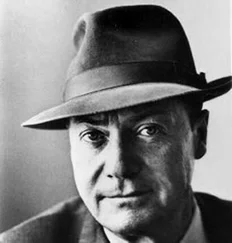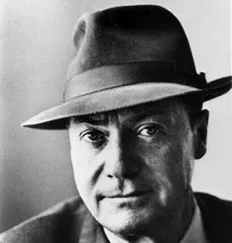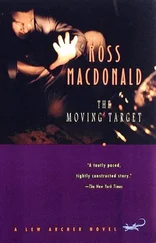Ross Macdonald - The drowning pool
Здесь есть возможность читать онлайн «Ross Macdonald - The drowning pool» весь текст электронной книги совершенно бесплатно (целиком полную версию без сокращений). В некоторых случаях можно слушать аудио, скачать через торрент в формате fb2 и присутствует краткое содержание. Жанр: Крутой детектив, на английском языке. Описание произведения, (предисловие) а так же отзывы посетителей доступны на портале библиотеки ЛибКат.
- Название:The drowning pool
- Автор:
- Жанр:
- Год:неизвестен
- ISBN:нет данных
- Рейтинг книги:5 / 5. Голосов: 1
-
Избранное:Добавить в избранное
- Отзывы:
-
Ваша оценка:
- 100
- 1
- 2
- 3
- 4
- 5
The drowning pool: краткое содержание, описание и аннотация
Предлагаем к чтению аннотацию, описание, краткое содержание или предисловие (зависит от того, что написал сам автор книги «The drowning pool»). Если вы не нашли необходимую информацию о книге — напишите в комментариях, мы постараемся отыскать её.
, Lew Archer takes this case in the L.A. suburbs and encounters a moral wasteland of corporate greed and family hatred—and sufficient motive for a dozen murders.
The drowning pool — читать онлайн бесплатно полную книгу (весь текст) целиком
Ниже представлен текст книги, разбитый по страницам. Система сохранения места последней прочитанной страницы, позволяет с удобством читать онлайн бесплатно книгу «The drowning pool», без необходимости каждый раз заново искать на чём Вы остановились. Поставьте закладку, и сможете в любой момент перейти на страницу, на которой закончили чтение.
Интервал:
Закладка:
“I didn’t know he had a place in L.A.”
“A little place, a one-room apartment. He took me down one week end to see it. Gee, wouldn’t that be funny if you came all the way up here to find him and he was down in L.A. all the time.”
“That would be a scream. You know where it is, so I can look him up tomorrow?”
“He won’t be there tomorrow. He’s got to be back on the job, at Slocum’s.”
I let her think that. “Too bad. I have to get back to L.A. tonight. Maybe you can give me his address.”
“I don’t have the number, but I could find it again.” Her eyes flickered dully, as if she hoped to promote something. She sat down on the bunk opposite me, so close that our knees touched. A pair of nylons hanging from a towel-rack above the bed tickled the back of my neck. “I’d do anything I could to help,” she said.
“Yeah, I appreciate that. Does the place have a name?”
“Graham Court, something like that. It’s on one of the little side streets off North Madison, between Hollywood and L.A.”
“And no phone?”
“Not that I know of.”
“Thanks again.” I stood up. She rose like my shadow, and we were jammed in the narrow aisle between the beds. I tried to move past her to the door, and felt the touch of her round thighs.
“I kind of like you, Mister. If there was anything I could do?”
Her breasts were pointed like a dilemma. I pushed on past. The man in the mirror was watching me with one eye as cold as death. “How old are you, Gretchen?” I asked her from the doorway.
She didn’t follow me to the door. “None of your business. A hundred years, about. By the calendar, seventeen.”
Seventeen, a year or two older than Cathy. And they had Reavis in common. “Why don’t you go home to your mother?”
She laughed: paper tearing in an echo chamber. “Back to Hamtramck? She left me at Stanislaus Welfare when she got her first divorce. I been on my own since 1946.”
“How are you doing, Gretchen?”
“Like you said, I’m doing all right.”
“Do you want a lift back to Helen’s?”
“No thank you, sir. I got enough money to live on for a week. Now that you know where I live, come and see me sometime.”
The old words started an echo that lasted fifty miles. The night was murmurous with the voices of girls who threw their youth away and got the screaming meemies at three or four a.m.
Chapter 10
I stopped at a lunch-bar east of the cemetery on Santa Monica Boulevard, for a sandwich and coffee and a look at the telephone book. It hung by a chain from the pay telephone on the wall beside the front window. A Graham Court on Laredo Lane was listed. I dialed the number and watched the sidewalk roamers. The young hepcats high on music or weed, the middle-aged men on the town, the tourists waiting for something to fulfill their fantasies, the hopeful floozies and the despairing ones, the quick, light, ageless grifters walked the long Hollywood beat on the other side of the plate glass. The sign above the window was red on one side, green on the other, so that they passed from ruddy youth to sickly age as they crossed my segment of sidewalk, from green youth to apoplexy.
A dim voice answered on the twelfth ring. Pat Reavis didn’t live at Graham Court, he never had, goodnight.
The counterman slid a thin white sandwich and a cup of thick brown coffee across the black Lucite bar. He had pink butterfly ears. The rest of him was still in the larval stage.
“I couldn’t help hearing,” he said moistly. “You’re looking for a contract, I know a good number to call.”
“Write it in blood on a piece of rag-content paper and eat it with your breakfast.”
“Huh?” he said. “Blood?”
“What makes you think that sex is the important thing in life?”
He laughed through his nose. “Name another.”
“Money.”
“Sure, but what does a guy want money for, answer me that.”
“So he can retire to a lamasery in Tibet.” I showed him a Special Deputy badge which I’d saved from a wartime case on the Pedro docks. “Pimping will get you a couple of years up north.”
“Jesus.” His face underwent a sudden and shocking change. Old age ran crooked fingers over it, and held it crooked. “I was only kidding, I didn’t mean nothing, I don’t now any number. Honest to God.”
His whine followed me onto the sidewalk. The closing door shut it off. I was in an unpleasant mood.
Laredo Lane was one of the little lost stucco-and-frame streets between the two big boulevards. Its street lights, one to a block, spaced long patches of gloom. There were occasional houselights where after-midnight parties were going on. I caught fragments of music and laughter, glimpses of dancing couples in the windows as I drove past. Some of the dancers were black, some white; some had brown Indian faces. Most of the small marginal houses were dark behind closed blinds. One entire block was empty, its broken row of concrete foundations bared by an old fire.
I felt like a lonely cat, an aging tom ridden by obscure rage, looking for torn-ear trouble. I clipped that pitch off short and threw it away. Night streets were my territory, and would be till I rolled in the last gutter.
The letters GRAHAM COURT were cut in the front of a rectangular metal box lit from inside by an electric bulb. Nailed to the post which supported the sign was a piece of white-painted board on which an unsteady hand had lettered VACANCY. The NO was hidden by a weathered cardboard flap. I parked two hundred feet past the sign and left my engine running. The exhaust made little blue puffs like pipe-smoke in the chilling air.
The Court was a row of decaying shacks bent around a strip of withering grass. A worn gravel drive brought the world to their broken-down doorsteps, if the world was interested. A few of the shacks leaked light through chinks in their warped frame sides. The building marked Office, which was nearest the street, was closed and dark. It looked abandoned, as if the proprietor had given up for good. Over my head a red-flowering eucalyptus moved in a wind as soft as night-time breathing, and dropped its thin small petals to the ground. I picked one off the sidewalk for no good reason and ground it to red powder between my fingers.
I was deciding between the direct approach and a long dull wait in the car, when the door of one of the cottages opened, halfway down the row. It dropped a yellow plank of light across the grass. A man’s shadow moved in it, and then the light went out. I walked on up the street, away from my car. After an interval, quick footsteps followed me.
At the corner, the man crossed under the streetlight. It was Reavis, walking with an eager swagger, chin up and shoulders held back consciously as if he was pied-piping a bevy of girls at broad noon. When he had turned the corner, I ran back to my car and drove it around the block in time to shut off the lights and see the one-man parade cross the next intersection.
I took no chances. Because he knew my car, I locked it and left it parked where it was. I let him stay nearly a block ahead and used whatever cover was convenient: trees, hedges, parked cars. He never looked back; he moved like a man whose conscience was clear, or lacking. When he got to Sunset, he turned left. I crossed the boulevard and closed the distance between us. He had on a hound-tooth suit in clashing black and tan. I could practically hear the suit across the wide traffic-humming thoroughfare.
Reavis headed for a taxi stand, where several cabs stood in line along the curb. I expected him to take one, and was set to follow him in another. Instead, he sat down on the bench at the bus-stop, crossed his legs, and lit a cigarette. I went a few yards up the building on the corner. Off to my left, the tall apartment hotels stood against a sky whose moving reddish color was like the inside of closed eyelids. The late night traffic flowed between me and Reavis at a steady thirty-five to forty.
Читать дальшеИнтервал:
Закладка:
Похожие книги на «The drowning pool»
Представляем Вашему вниманию похожие книги на «The drowning pool» списком для выбора. Мы отобрали схожую по названию и смыслу литературу в надежде предоставить читателям больше вариантов отыскать новые, интересные, ещё непрочитанные произведения.
Обсуждение, отзывы о книге «The drowning pool» и просто собственные мнения читателей. Оставьте ваши комментарии, напишите, что Вы думаете о произведении, его смысле или главных героях. Укажите что конкретно понравилось, а что нет, и почему Вы так считаете.












